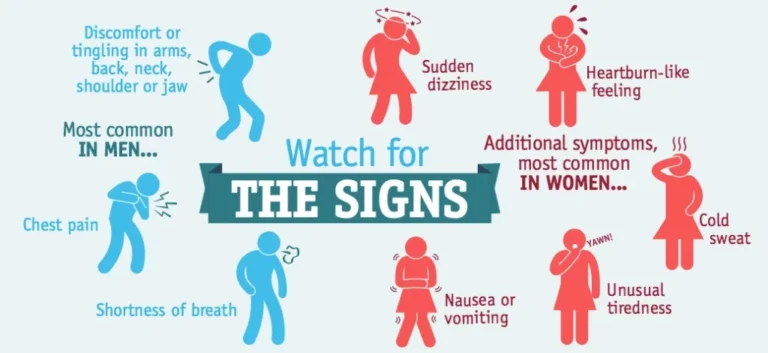The Link Between Stress and Heart Health: What You Need to Know
In today’s fast-paced world, stress has become a common experience for many. Whether it’s due to work, family responsibilities, or personal challenges, stress can have a significant impact on your mental and physical health. While stress is a normal part of life, chronic stress—when it becomes persistent and overwhelming—can take a toll on your heart health. Understanding the link between stress and heart disease is crucial to preventing long-term damage to your cardiovascular system.
What is Stress?
Stress is a natural response to challenges or threats in our environment. When we encounter stress, our bodies release hormones like adrenaline and cortisol, which prepare us to deal with the situation by triggering the “fight-or-flight” response. This reaction increases heart rate, raises blood pressure, and enhances alertness. For short-term stress, this response is helpful and necessary for survival.
However, chronic stress occurs when the body remains in a heightened state of alertness over long periods. This constant activation of the stress response can negatively affect various systems in the body, including the heart.
How Stress Affects the Heart
While short bursts of stress can be beneficial in certain situations, chronic stress can be detrimental to heart health. Here’s how:
1. Increased Blood Pressure
Chronic stress causes the body to release stress hormones that can elevate blood pressure. Over time, this increased pressure can damage the walls of the arteries, making them more susceptible to the build-up of plaque (atherosclerosis). Atherosclerosis narrows and hardens the arteries, which can lead to heart attacks and strokes.
2. Higher Risk of Heart Disease
Research has shown that long-term stress is associated with a higher risk of developing heart disease. Prolonged stress can cause inflammation in the body, which is a major contributor to the development of coronary artery disease. This inflammation damages the blood vessels and increases the risk of a heart attack.
3. Changes in Heart Rate
Stress can cause an irregular heart rate, also known as arrhythmia. When the body is under stress, it may trigger rapid or irregular heartbeats, which can increase the risk of heart disease and other cardiovascular problems.
4. Increased Risk of Blood Clots
Chronic stress may increase the risk of developing blood clots. This is because stress hormones cause the blood to become thicker, which increases the likelihood of clot formation. Blood clots can block blood flow to the heart or brain, resulting in heart attacks or strokes.
5. Behavioral Factors
When people are stressed, they may turn to unhealthy coping mechanisms, such as smoking, overeating, or drinking excessive alcohol. These behaviors can further elevate the risk of heart disease. For example, smoking damages the blood vessels and raises blood pressure, while poor eating habits can lead to obesity, high cholesterol, and diabetes—all risk factors for heart disease.
6. Weakened Immune System
Chronic stress can suppress the immune system, making the body more vulnerable to infections and illnesses. This can increase inflammation in the body, which contributes to heart disease and other cardiovascular issues.
The Psychological Impact of Stress
The mental and emotional toll of stress is just as important as the physical effects. Constant anxiety, worry, or depression can contribute to poor heart health. People who are stressed often have higher levels of anxiety, depression, and mood swings, which can further exacerbate cardiovascular issues. Moreover, high levels of stress are linked to unhealthy lifestyles, such as lack of sleep, poor diet, and physical inactivity—factors that all contribute to heart disease.
How to Manage Stress for Better Heart Health
Fortunately, there are steps you can take to manage stress and protect your heart. Incorporating stress-reducing habits into your daily routine can help you maintain a healthy heart and reduce the harmful effects of chronic stress.
1. Exercise Regularly
Physical activity is one of the best ways to reduce stress. Exercise releases endorphins (the body’s natural mood enhancers) and helps regulate the body’s stress hormones. Aim for at least 30 minutes of moderate exercise, such as walking, cycling, or swimming, most days of the week. Regular exercise not only improves cardiovascular health but also promotes relaxation and improves sleep.
2. Practice Relaxation Techniques
Relaxation techniques, such as deep breathing exercises, meditation, or yoga, can help calm the body and reduce the physical effects of stress. These practices activate the body’s parasympathetic nervous system, which counters the fight-or-flight response and promotes a sense of calm. Even taking a few minutes each day to practice mindfulness or controlled breathing can make a significant difference in reducing stress.
3. Get Enough Sleep
Sleep is essential for heart health, and chronic sleep deprivation can increase the risk of heart disease. Aim for 7-9 hours of quality sleep per night to allow your body to repair itself and manage stress effectively. Good sleep hygiene practices—such as maintaining a regular sleep schedule, avoiding caffeine before bed, and limiting screen time—can improve the quality of your sleep.
4. Adopt Healthy Eating Habits
A balanced diet rich in fruits, vegetables, whole grains, lean proteins, and healthy fats can help your body manage stress more effectively. Avoid excessive consumption of caffeine, alcohol, and sugar, as these can increase stress levels. Eating heart-healthy foods, such as those rich in omega-3 fatty acids (e.g., salmon, flaxseeds, and walnuts), can help reduce inflammation and lower stress hormones.
5. Stay Connected
Social support plays a crucial role in managing stress. Spending time with family and friends, talking about your feelings, or participating in social activities can help you feel more relaxed and supported. Strong social connections have been shown to lower stress levels and improve overall well-being.
6. Seek Professional Help
If stress becomes overwhelming and difficult to manage, consider seeking professional help. Talking to a therapist or counselor can help you develop healthy coping strategies and address the root causes of your stress. Cognitive-behavioral therapy (CBT) has been shown to be effective in helping people manage stress and anxiety.
Conclusion
Stress is a normal part of life, but chronic stress can have a profound impact on your heart health. Understanding the link between stress and heart disease is crucial for taking proactive steps to protect your heart. By adopting healthy lifestyle habits—such as regular exercise, relaxation techniques, proper sleep, and a balanced diet—you can manage stress and reduce its harmful effects on your cardiovascular system. Don’t let stress take a toll on your heart. Prioritize stress management and take control of your heart health today.






